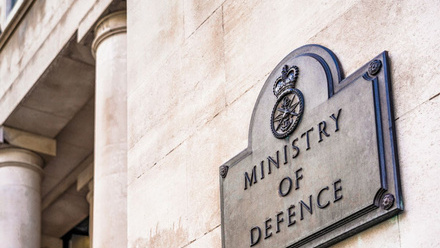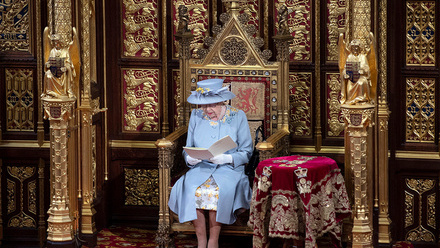Justice & Emergency Services Conference 2020
On the 26 November 2020 techUK was joined by over 180 delegates from across the justice & emergency services community for this years end of year virtual conference (formally the JES Drinks Reception). This half-day conference saw suppliers across the blue light and justice ecosystem and public sector stakeholders coming together to look back at 2020 – a year filled with many challenges, to share best practice and learning’s, to showcase digital innovation to how those challenges were overcome. It also presented an excellent opportunity to look ahead to 2021 and what this might look like for our justice and emergency services.
The conference was kicked off with a welcome and introduction from Georgie Henley, techUK’s Justice & Emergency Services (JES) Programme Manager and Allan Fairely, techUK’s JES committee chair and UK Police & Justice Managing Director at Accenture who provided an overview of the excellent work of the committee and what the programme has achieved so far. It has been a different year and, despite the challenges including remote working – a lot has been achieved this year especially in barrier breaking between stakeholders and suppliers (virtually!). This can be particularly highlighted by the interoperability across policing working group and the focus on the justice sector and new working group looking at driving digital transformation across the criminal justice system.
We were delighted and privileged for our keynote this year to be delivered by Stephen Kavanagh QPM DL, Executive Director of Police Services at Interpol. Stephen supports Interpol’s work in global law enforcement and works to ensure the organisation provides quality specialised knowledge, and operational and investigative support to its member countries in high profile crime areas. Prior to this role, Stephen served as Chief Constable of Essex Police.
Stephen updated delegates on the progression of Interpol, especially in its use of technology, and the challenges we, services, and the public face with the progression of tech and the change in the crime landscape. This has especially been noted in the response to the pandemic we have seen from policing this year. It was noted of course, the power of technology for solving crime, unlocking innovation, improving efficiencies and assisting in the push for interoperability to support law enforcement. With a year of many challenges and a lot of learning, where next for technology and law enforcement?
Following Stephen Kavanagh QPM DL, we were delighted to welcome to the virtual stage Ian Bell, Chief Executive at Police ICT Company, and Alex Bowen, Deputy Director at The National Enabling Programme to provide an update on the National Digital Policing Strategy, launched at the start of 2020. Delegates were able to hear some of the progress made this year, and the ambitions for the next 5-10 years. It was highlighted again, the importance of interoperability and the work of techUK’s working group in this area. It has been a challenging year, and it was great to gain an insight into the work under the strategy and, of course, the policing response to the challenges raised by COVID-19. Delegates were asked – under the strategy, how can suppliers influence and, how can we build momentum in driving some of the mentioned challenges as we move forward?
NEP have done some great work in building ontop of the strategy, with a particular mention of how technologies have been deployed this year to support forces, and also the roll out of the National Management Centre (NMC). techUK work incredibly closely with both Police ICT Company and NEP as key partners, and we look forward to continuing this work into the new year and beyond.
Delegates were given the choice of attending one of three breakout rooms:
1. Interoperability across Policing
Delegates were given the opportunity to hear and feedback on the work being done in this area across the National Standards Board, Data Quality programme and techUK's interoperability working group.
Panel: Jo Farrell, Chief Constable, Durham Constabulary | Teresa Ashforth, Data Quality & Standards Lead, Home Office | Neil Beet, Business Development Manager, National Security & Public Safety, Amazon Web Services | Robert Leach, Director, R.Leach Consulting (Moderator) | Brendan Johnston, National Standards Lead, Police ICT Company
2. Digital Justice
Delegates could listen to and explore the opportunities and challenges facing our CJS and what technology can do in response. Where have we already seen that digital transformation happen?
Panel: Dr Natalie Byrom, Research Director, The Legal Education Foundation | Tom Read, Chief Digital & Information Officer (CDIO) at Ministry of Justice | Brendan Swarbrick, Executive Client Director, Home Office & Ministry of Justice, Sopra Steria (Moderator) | Emma Feggetter, Business & Digital Transformation Programme Manager, Accenture | Tonya McMorrow, Programme & Delivery Manager, Kainos
3. Multi-Agency Working
A number of questions were addressed in this room, including - what is the value of a multi-agency approach for improving public safety, and where might those barriers be for achieving this? What role does data play?
Panel: Chris Ullah, Solutions Expert, Blackberry | Richard Battams, Senior Project Manager, Staffordshire Commissioners Office for Police, Fire, Rescue and Crime | Apollo Gerolymbos, Head of Data and Analytics, National Fire Chiefs Council | Richard Duffield, Head of Customer Insights, GeoPlace (Moderator) | Georgina Maratheftis, Head of Local Public Services, techUK
Following our breakout rooms, delegates were invited back to the main stage for closing remarks and thanks. We reflected on 2020 and the tremendous efforts of our emergency services in the response to the pandemic and also highlighted how the JES programme assisted members and stakeholders in their response to the challenges, but also how value continued to be delivered throughout the year across a variety of thematic areas. All JES events were successfully moved online with even more members attending these events than ever before with engagement with blue light and justice system stakeholders going from strength to strength. Thanks were given to all involved in the conference and the continued support of members and public sector stakeholders and their engagement in the JES Programme.
Closing off the conference, delegates, speakers and panellists were invited to a ‘speed dating style’ networking session. This style was introduced to the conference in order to replicate those ‘round the biscuit table conversations’ you would usually have at face-to-face conferences. It was a huge success and we were delighted to see so many attendees getting involved and speaking to other attendees they wouldn’t have usually spoken to. Thank you to all who attended this conference and everyone who continues to support the work of the JES Programme. We look forward to continuing our work as we move into 2021. If you are interested in hearing more about our work with members, stakeholders and our programme activities – please reach out to Georgie – [email protected]







